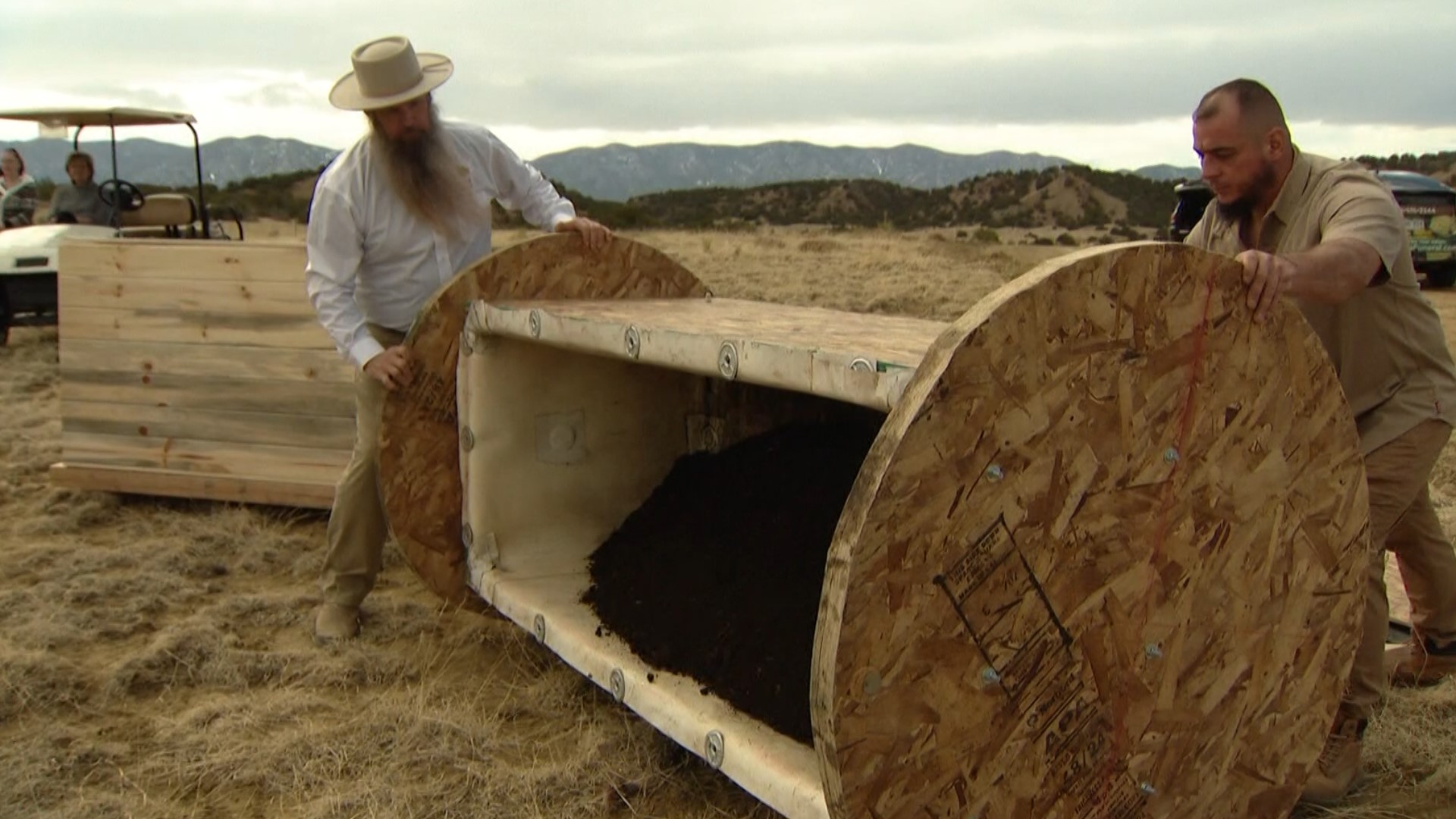ATLANTA — A more environmentally friendly way to die. That's how advocates describe the newly legalized body composting process in Colorado.
Less than a year after lawmakers in Colorado legalized the process, a new green alternative to traditional cremations or burials has begun.
"It'll be the foundation of life here forever," said Seth Viddal, with The Natural Funeral.
According to Viddal, after death a body is placed in an air-filtered chamber, with wood chips, alfalfa, straw and microbial beings. It's a process called natural reduction.
The natural decomposition progression takes about six months.
The business said there are no appreciable carbon emissions or release of toxic fumes, that's in contrast to flame cremation. Also, no real estate space is taken up, as with conventional burials.
One body generates about a pick-up truck bed's worth of soil that families can keep or donate to then be used to grow plants, like trees and flowers.
Colorado law prohibits the soil of multiple people to be combined without permission and bars the soil from being used to grow food for human consumption or being sold.
This type of natural burial through Viddal's service can cost $7,900. A more costly option compared to the nearly $7,000 average families pay for a service and cremation, but closer to the average cost for a funeral, viewing and burial, at $7,800, according to the National Funeral Directors Association.
The group has accepted remains from outside the state of Colorado, as many states have not legalized the process.
Washington state was the first to legalize human composting. It's also available in Oregon.
The Georgia General Assembly did not find any current proposals to clear similar legislation in the Peach State.

